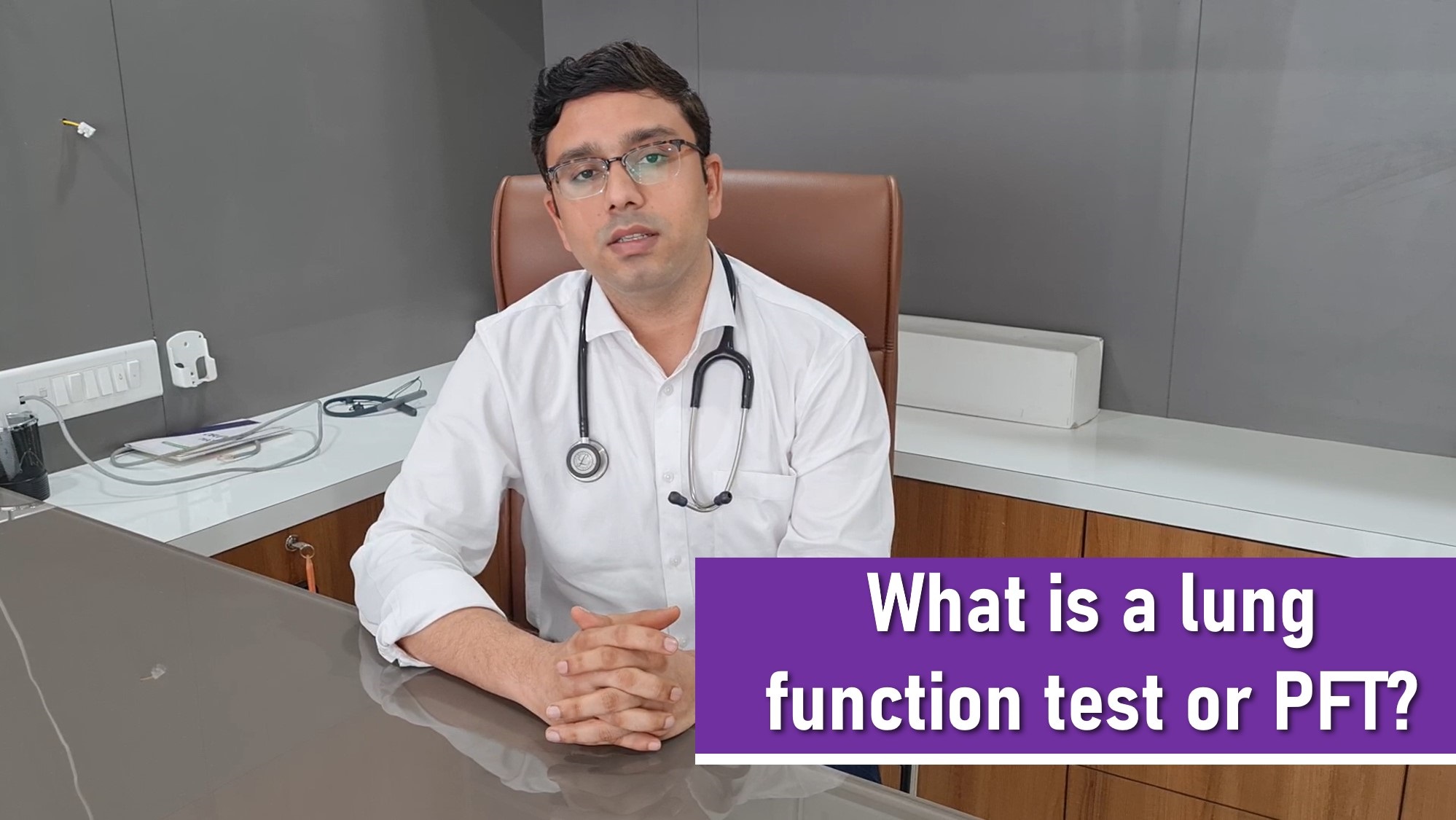- Swastik Clinic, Ahmedabad, GJ, IND
- Call: 8849867169 (For Appointment)
- Mon - Sat: 10 AM - 08 PM
- Sun: Only Emergencies
What is a lung function test or PFT?

What is a lung function test or PFT?
Pulmonary function tests (PFTs) are a group of tests that measure how well your lungs work. PFTS are like ECG of the lungs. The test is noninvasive, which means that the doctor doesn’t cut you or put any tools inside your body.
Your pulmonologist may order these tests:
- if you have symptoms of lung problems
- if you are regularly exposed to certain substances at work ok environment that damages your lungs
- to assess how well your lungs are working
Why are Pulmonary Function Tests done?
Your heart specialist doctor may order PFTs, if you have a condition that’s affecting your lungs, and to see if the condition is progressing or how it’s responding to treatment. PFTs can help diagnose:
- asthma
- allergies
- chronic bronchitis
- respiratory infections
- lung fibrosis
- COPD
- pulmonary tumor
- lung cancer
Here’s a video wherein, Dr. Kalpesh Panchal (Consultant Pulmonologist in Ahmedabad), explains about PFT and why it is done.
What are the types of PFTs?
Pulmonary Function Tests consist of measures and diagnosis methods that can ascertain the functioning as well as the capacity of your lungs. PFTs are of following types:
Spirometry – This test measures the amount of air you breathe in and out. For spirometry, you’ll sit in front of a machine and be fitted with a mouthpiece.
Impulse Oscillometry – IOS is a simple, noninvasive method using the forced oscillation technique, requires minimal patient cooperation and is suitable for use in both children and adults. Impulse oscillometry can be used to assess obstruction in the large and small peripheral airways and has been used to measure bronchodilator response and bronchoprovocation testing.
Dr. Kalpesh Panchal explains the easy-to-use Spirometry & Impulse Oscillometry. Covered in this video are: how a pulmonary function test works and how it can help doctors identify potential lung problems.
Plethysmography test – A plethysmography test measures the volume of gas in your lungs, known as lung volume.
Diffusion capacity test – This test evaluates how well the small air sacks inside the lungs, called alveoli, work. You may also breathe in a “tracer gas” for one breath. The machine can detect when you breathe out this gas.
Preparing for pulmonary function tests
Your doctor or the medical team will explain the test and what you can expect during the test. Ask them whatever questions you have. For best results:
- take your medications before tests unless your doctor tells you not to.
- don’t smoke before the test
- don’t drink alcohol at least 4-8 hours before the test
- don’t eat large meal before the test
- don’t do any hard exercises at least 30 mins before the test
Most tests take 15 to 30 minutes. You may be tired afterward. Your medical team will give you time to rest. Then, you can go back to your normal activities.
What are the side-effects of the lung function test?
Usually, no side effects from the PFTs occur. However, some patients may feel:
- dizziness
- shortness of breath
- coughing
- as asthma attack
Your doctor probably won’t recommend a PFT if you have:
- had a recent eye surgery
- had recent surgery on chest
- a recent heart attack or certain heart conditions
- an active tuberculosis
Lung function tests or pulmonary function tests are important, whether you’ve been diagnosed with a breathing problem or think you may have one. They can be the first step toward breathing easier.
If you are looking for a Pulmonary Function Test (PFT) in Ahmedabad or Lung Function Test in Ahmedabad, contact us – Dr. Kalpesh Panchal (Pulmonologist in Ahmedabad) at Swastik Lungs Care & Allergy Clinic.
Recent Posts
Archives
- April 2022
- January 2022
- December 2021
- November 2021
- August 2021
- July 2021
- June 2021
- May 2021
- April 2021
- March 2021
- February 2021
- January 2021
- December 2020
- November 2020
- October 2020
- September 2020
- August 2020
- July 2020
- June 2020
- May 2020
- April 2020
- March 2020
- February 2020
- January 2020
- December 2019
- November 2019
- October 2019
- September 2019
- August 2019
- July 2019
Categories
Recent Posts


I Got Covid-19 & Have Asthma – What Now?
09th Jan 2022
